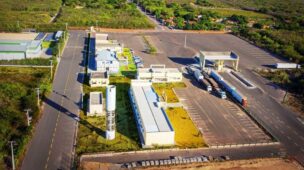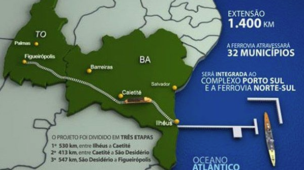Tempo de leitura: 3 minutos
Members of Government o the Democratic Republic of Congo (DRC) and private sector leaders have agreed that for an effective ecosystem for the battery, electric vehicles (BEV) and renewable energy value chain in the country, Special Economic Zones (SEZ) have to be independent.
At the DRC Africa Business Forum panel discussion on an ecosystem for the BEV value chain, DRC’s industry, trade, mining, communications and media ministers ( Julien Paluku, Antoinette N’Samba Kalambayia, Jean Lucien Bussa and Patrick Muyaya respectively) and the private sector representatives said the independence of SEZ will increase confidence in the initiative and create the right balance of incentives for investors from the other countries.
Both the ministers and business community agreed that the battery production initiative represents a major change of narrative – both in bringing positivity to coverage of DRC, and putting DRC in the drivers’ seat of value chains it is involved in. The Africa Continental Free Trade Area (AfCFTA) they said will be an important tool in all the BEV development.
Antonio Pedro, Deputy Executive Secretary, Economic Commission for Africa (ECA) who moderated the round table discussions said BEV production is dependent on an integrated model of production and thus SEZ have emerged as one of the responses to provide an elusive investment framework for BEV.
“To create a functional battery plant in DRC, the Government must create the right regulatory and legal framework to attract foreign direct investment and apply the same for the local investors,” said Mr Pedro, adding that ensuring institutional cohesiveness is also important for industrial policy.
He noted that to develop an effective ecosystem for BEV and renewable, the ecosystem must start from the supply side that will ensure constant exploration of mines for production of battery minerals like Nickel, Cobalt.
David McLachlan-Karr- the Resident and Humanitarian Coordinator of the UN in DRC observed that Congo has diverse and rich natural resources and has the capacity to change the distribution of benefits from the green mineral value chains.
“Investors believe in this project and are involved. The work will be very complex, requiring a focused approach. Investing in this sector in DRC won’t just yield financial returns, but will be vital for the global reaching of the Paris agreement, and improving lives in DRC,” said McLachlan-Karr.
Patrick Muyaya, Minister of Communication & Media, DRC said, “There is clear reason to invest in DRC, and extensive potential for returns, and lower costs in comparison with other countries. The next generation is involved in leadership, and is looking to change the narrative of the country.”
Julien Paluku Kahongya, Minister of Industry, DRC noted that politics rather than economics has dominated the discussion on value addition. There is clear commitment from the head of state, and thus the industrial policy is not just for industry, but for the entire economy and society.
Antoinette N’Samba, Minister of Mines, DRC said DRC is undertaking plans to better develop its minerals, not only cobalt but lithium and others. DRC wants to re-certify its minerals, to understand the full extent of deposits.
“An MoU is underway for diamond value addition with the Netherlands. Will be investigating if companies requesting exemptions have fulfilled obligations,” said the minister.
Jean-Lucien Bussa, Minister of Trade, DRC said this was a true paradigm shift and a new day for his country. To boost trade requires producing more, which requires more investment, which requires more opportunities. So need to improve the business environment. This can also have ripple effects, including reducing the need to import cars in the future.
The panelists recommended that it is vital for country to harness its comparative advantage to break into these new, high-value activities which are growing globally at an exponential rate; the recent Bloomberg report has made clear both the immense potential of investing in cobalt value-addition and battery production in DRC, and the lower costs of doing so relative to other countries; financial incentives, trust in Government, involvement of local firms and skilling of young workers will be vital to ensure this opportunity is realizable; there is need to act fast, as battery alternatives are being found; there is a further proposal to insert carbon credit markets into SEZs, to harness funds available to market the continent’s resources.






Os comentários foram encerrados, mas trackbacks e pingbacks estão abertos.